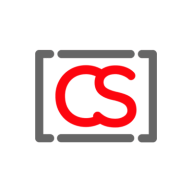

Find out what your peers are saying about Black Duck, Snyk, Veracode and others in Software Composition Analysis (SCA).

Organizations use Black Duck for compliance, internal audits, license management, and security, scanning software to identify vulnerabilities, non-compliant code, and dependencies in open-source projects.
Black Duck integrates into CI/CD pipelines and DevSecOps processes, helping multiple industries detect and handle risks associated with open-source usage. Users leverage it for source and binary analysis to ensure security and compliance before software release. Automatic component analysis, effective vulnerability scanning, and a comprehensive knowledge base are some of its valuable features. Despite needing improvements in scanning speed, UI, and documentation, Black Duck remains crucial for ensuring open-source security and compliance.
What are Black Duck's most important features?
What benefits or ROI should users look for in reviews?
Black Duck is implemented by industries ranging from finance to healthcare, addressing security and compliance in open-source usage. Financial institutions employ it to manage license risks and ensure audit readiness. Healthcare organizations use it to comply with stringent data protection regulations, ensuring patient data security and privacy. Tech companies integrate Black Duck within CI/CD pipelines to maintain the security and compliance of software products before release. Its deployment varies, tailored to meet the specific risk management and compliance needs dictated by each sector's regulatory environment.
The use of third-party software is now a reality. In fact, at least 90% of corporations use third party software and 95% of proprietary or custom software applications they create contain third party components. To overcome this blind spot in assessing third-party software inventory and risk, CodeSentry allows security professionals to measure and manage the risk associated with open source vulnerabilities in third-party software quickly and easily.
We monitor all Software Composition Analysis (SCA) reviews to prevent fraudulent reviews and keep review quality high. We do not post reviews by company employees or direct competitors. We validate each review for authenticity via cross-reference with LinkedIn, and personal follow-up with the reviewer when necessary.